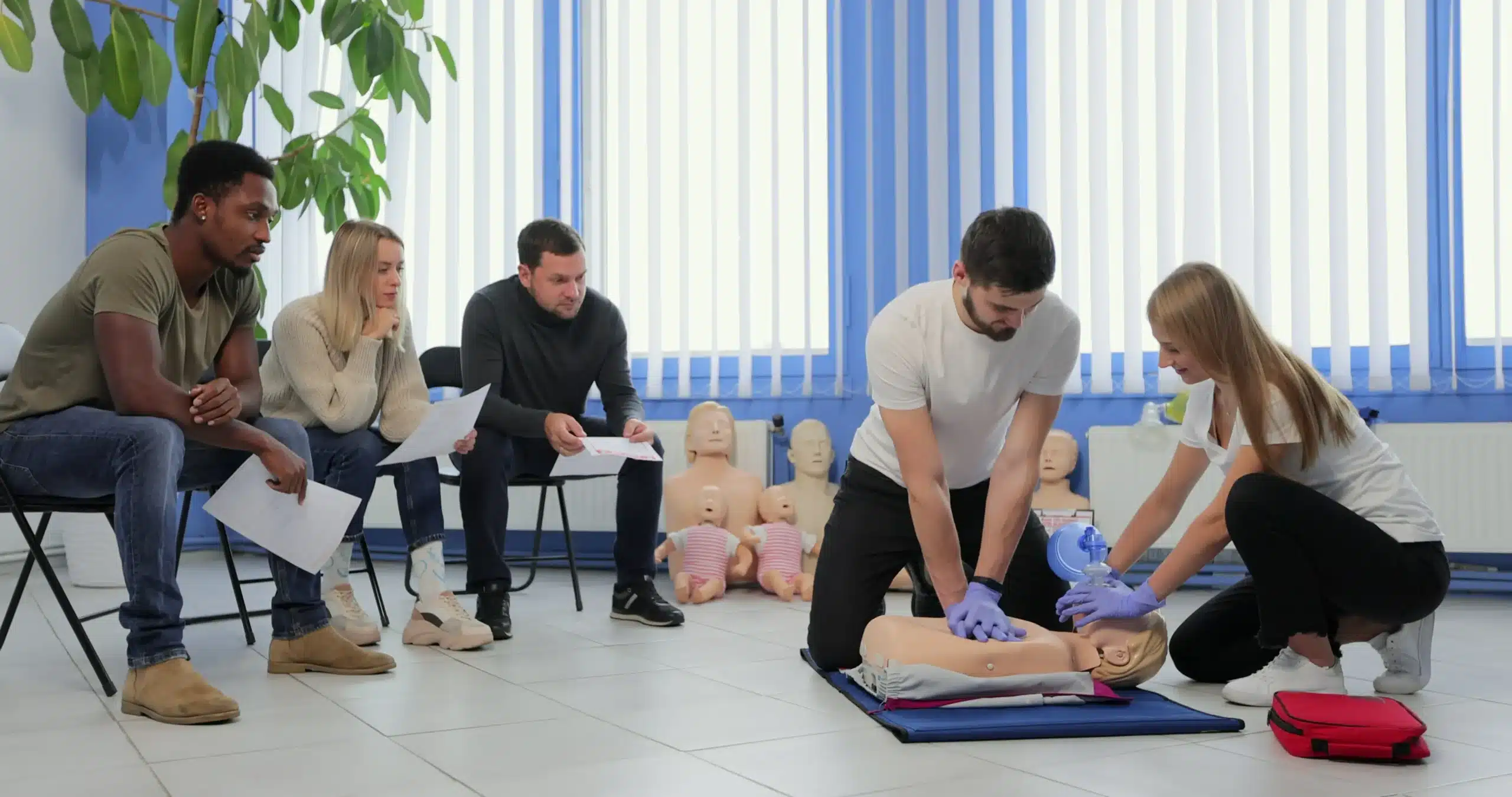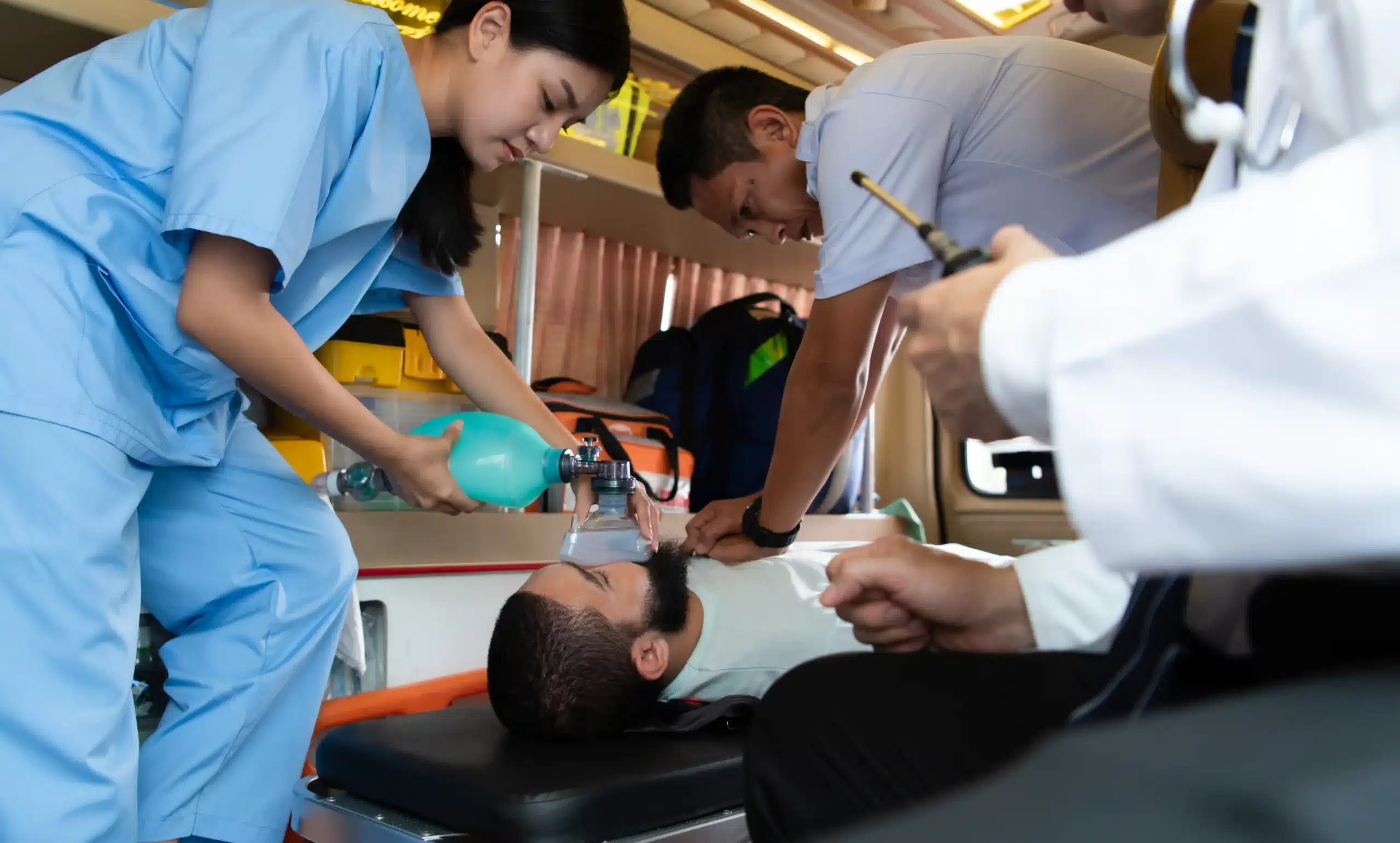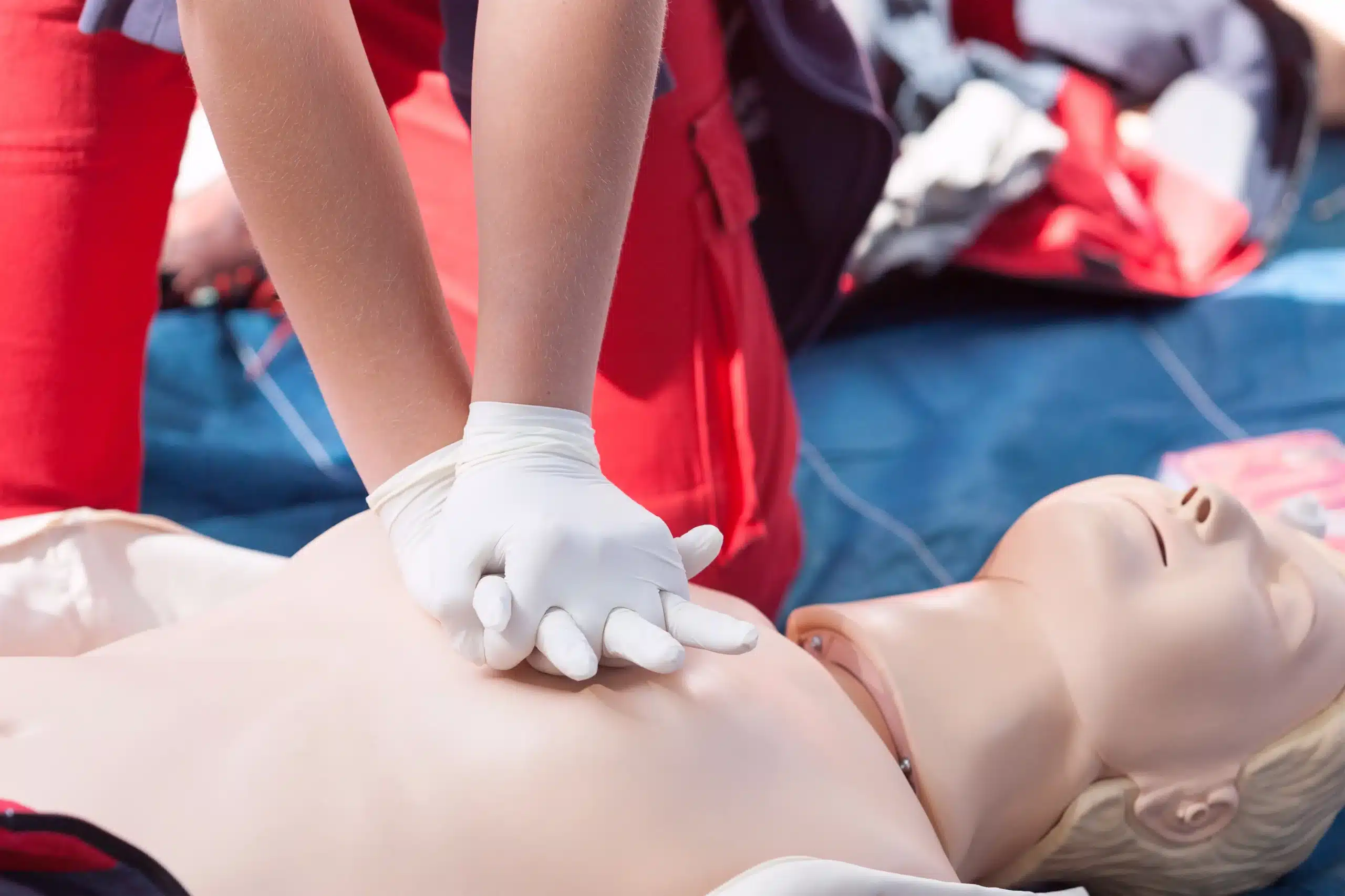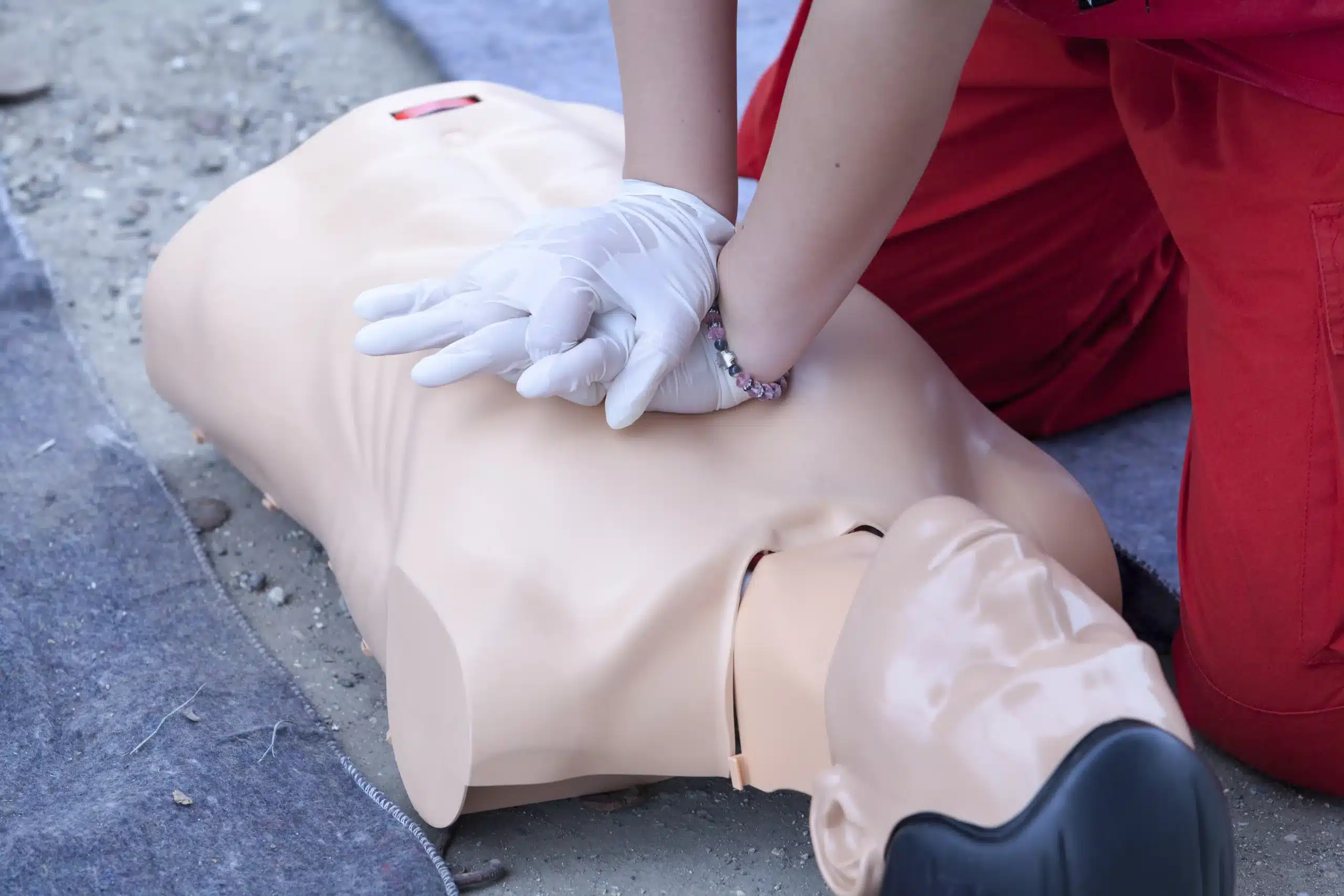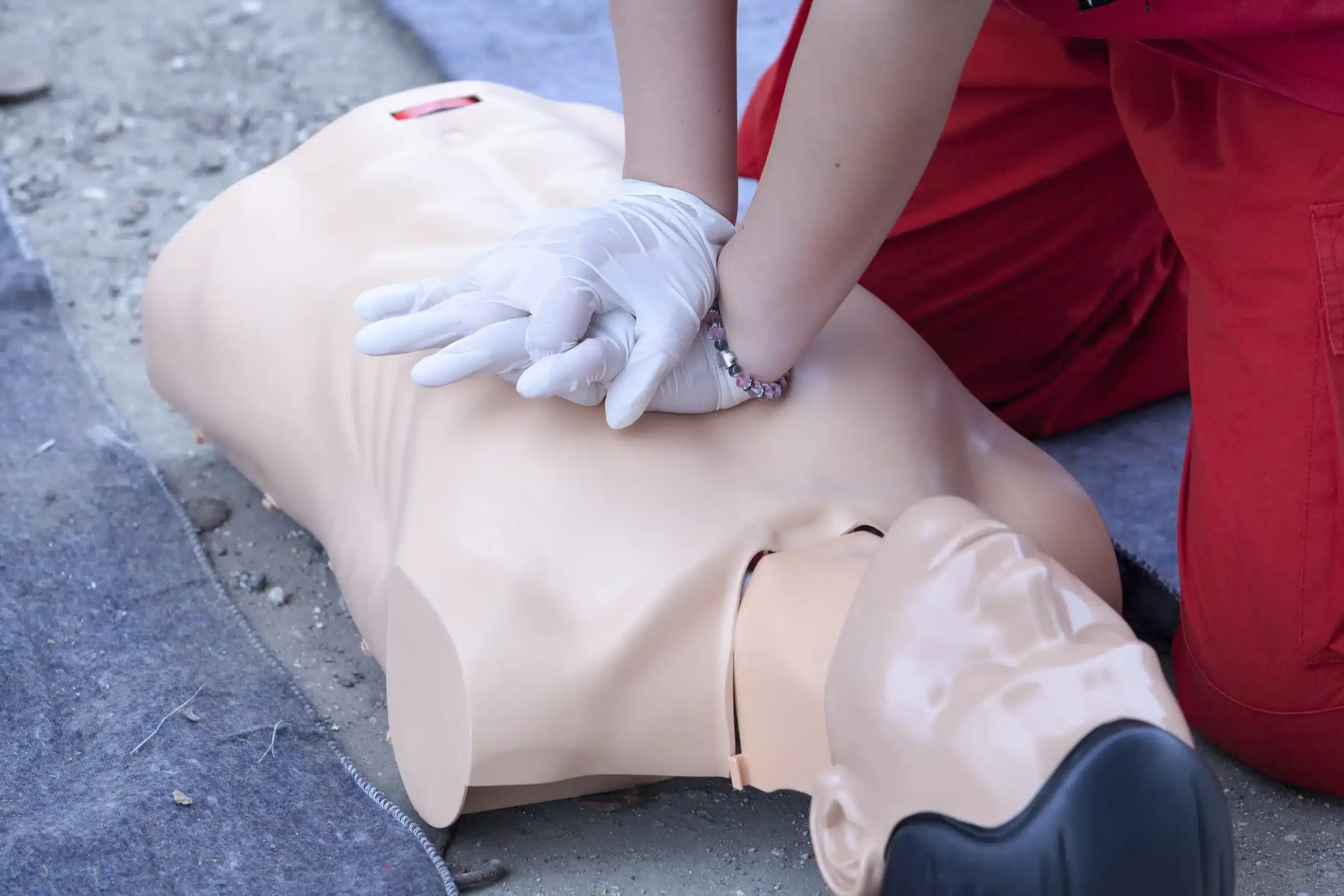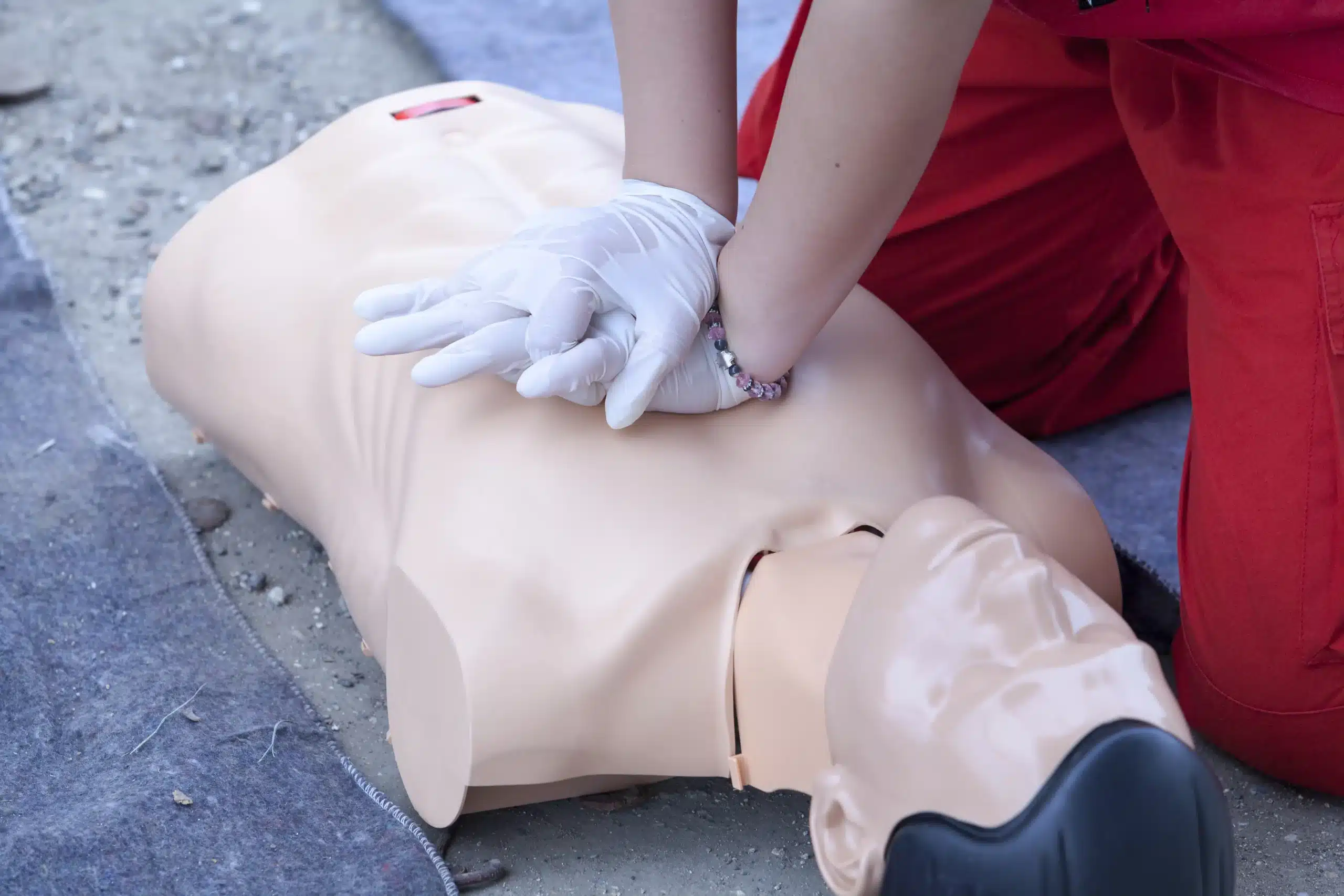Working in healthcare, especially with children, means being prepared for anything. When a child’s life is on the line, seconds matter. Pediatric Advanced Life Support (PALS) training equips healthcare professionals with the skills to confidently manage pediatric emergencies, providing a crucial framework for assessment and treatment. If you’re a healthcare provider in Citrus Heights, this article offers a comprehensive guide to understanding PALS, finding the right training program, and the benefits of PALS certification. We’ll explore top PALS training providers, discuss course content, and address common questions about cost and scheduling. Whether you’re a seasoned professional or just starting your career, this guide will help you find the best pediatric advanced life support in Citrus Heights.
Key Takeaways
- PALS is a must-have for healthcare professionals treating infants and children: This specialized training gives you the skills and confidence to handle pediatric emergencies effectively, leading to better patient outcomes. Seek out an AHA-certified training center like Folsom CPR Classes or Citrus Heights CPR Classes.
- PALS training fits your busy schedule: With blended learning options, flexible schedules, and resources like the RQI program, maintaining your certification is manageable. Many providers offer continuing education to keep your skills sharp and knowledge current.
- PALS certification advances your career and improves patient care: It enhances your job prospects, builds confidence in critical situations, and meets professional requirements. It’s a valuable credential for any healthcare provider committed to providing excellent pediatric care.
What is Pediatric Advanced Life Support (PALS)?
What is PALS & Why is it Crucial?
Pediatric Advanced Life Support (PALS) training equips healthcare providers with the skills to manage pediatric emergencies. It emphasizes a systematic approach to assessment, treatment, and stabilization of critically ill infants and children. Think of it as a structured roadmap guiding medical professionals through the complexities of a pediatric crisis. PALS helps improve patient outcomes and increase the chances of survival by providing a consistent framework. The training covers everything from recognizing early signs of deterioration to providing appropriate interventions. This focus on early recognition and effective treatment makes PALS crucial in pediatric care. For a more detailed look, explore this guide to Pediatric Advanced Life Support.
Who Needs PALS Certification?
PALS certification is essential for any healthcare professional regularly involved in the care of infants and children, including professionals in hospitals, emergency rooms, and ambulances. Physicians, nurses, paramedics, respiratory therapists, and other healthcare providers who may be first responders in a pediatric emergency should strongly consider obtaining PALS Certification. It’s not just about having the knowledge; it’s about confidently applying that knowledge under pressure. If your role involves treating critically ill children, PALS certification is a valuable asset. Learn more about who benefits from PALS training and how it can make a significant difference in various healthcare roles.
Top PALS Training Providers in Citrus Heights
Finding the right Pediatric Advanced Life Support (PALS) training provider is crucial for healthcare professionals who work with children. Here’s a look at some of the top options in Citrus Heights:
Folsom CPR Classes
Folsom CPR Classes offers a comprehensive range of American Heart Association (AHA) courses, including PALS, along with BLS, ACLS, and First Aid. They also offer the RQI program, a convenient option to refresh your skills and maintain your certifications. For those looking for a variety of courses and a convenient way to stay up-to-date, Folsom CPR Classes is worth checking out. Learn more about their PALS certification.
Citrus Heights CPR Classes
Safety Training Seminars, operating as Citrus Heights CPR Classes, is a woman-owned AHA Training Center. They pride themselves on providing high-quality AHA courses, including PALS, BLS, ACLS, CPR, and First Aid. With courses offered daily, they aim to make training accessible to busy professionals in Citrus Heights and surrounding areas. Visit the Citrus Heights CPR website for more information.
Dignity Health
Dignity Health is known for its focus on improving pediatric emergency care, and their PALS training reflects this commitment. While details may vary, their program likely emphasizes practical skills and the latest guidelines in pediatric life support. You can explore Dignity Health’s website for more information on their PALS training.
Safety Training Seminars
Safety Training Seminars offers AHA-certified CPR, BLS, ACLS, and PALS courses in Citrus Heights. Their focus on providing these essential certifications makes them a convenient option for healthcare providers in the area. Learn more about their course offerings.
Sacramento CPR Classes
Sacramento CPR Classes offers a blended learning PALS course, combining online learning with in-person skills practice. This format can be a good fit for those who prefer a flexible learning approach. You can find more information on their blended learning PALS course.
PALS Course Structure and Content
PALS courses blend online learning with in-person skills sessions. This flexible format makes training accessible for busy professionals. Here’s a breakdown of what to expect.
Blended Learning Format
The PALS course combines online modules with hands-on practice. You’ll start by working through the online materials at your own pace, covering core concepts and essential information. This preps you for the in-person portion, where you’ll focus on practical skills.
Key Topics & Skills
PALS training equips you to manage pediatric emergencies like respiratory distress, cardiac arrest, and shock. You’ll learn to recognize these conditions, provide appropriate interventions, and work effectively as part of a team. The course also emphasizes post-resuscitation care and highlights common errors to avoid, ensuring you’re prepared for any situation. This training is invaluable for healthcare providers in various settings, from emergency rooms to pediatric intensive care units. For anyone who might encounter a pediatric emergency, PALS training can improve patient outcomes.
Interactive Scenarios & Hands-on Practice
PALS courses use interactive scenarios and simulations to reinforce learning and build confidence. You’ll work through realistic emergency situations, applying your knowledge and making critical decisions in a safe learning environment. Hands-on practice with instructors and voice-assisted manikins allows you to hone your skills and receive personalized feedback. Experienced providers might be able to shorten their course time through pre-assessments, focusing on areas where they need a refresher.
Post-Course Resources & Support
After completing your PALS course, you’ll receive your certification card, valid for two years. Many providers also offer access to ongoing resources and support to help you maintain your skills and stay up-to-date with the latest guidelines. This might include online refreshers, continuing education opportunities, or access to a community of PALS-certified professionals. Ongoing support ensures you feel confident and prepared to handle pediatric emergencies long after you finish the course.
Cost & Accessibility of PALS Certification
Getting PALS certified doesn’t have to break the bank or disrupt your busy schedule. Understanding the costs and flexible learning options available can help you plan your training effectively. Let’s explore the typical pricing, various course formats, and resources designed for busy professionals.
Average Pricing & Discounts
The average cost for PALS certification is around $290, though this can vary depending on the training center and what’s included. Some providers bundle in extra materials or resources, which might affect the final price. Checking for group discounts is a smart way to save, especially if you’re coordinating training for a team or group of colleagues. Folsom CPR Classes offers discounts for group bookings.
Course Formats & Schedules
PALS courses recognize that everyone learns differently and has varying schedules. You’ll find options for in-person classes, online learning, or a hybrid approach. This flexibility lets you pick the format that best suits your learning style and availability. For those who prefer a traditional classroom setting, classes are often held at convenient locations, with flexible hours. Folsom CPR Classes offers this type of scheduling to accommodate busy professionals in Folsom, Citrus Heights, and Sacramento.
Flexible Options for Busy Professionals
Juggling work, family, and other commitments can make finding time for professional development tricky. The Resuscitation Quality Improvement (RQI) program offers a streamlined path to PALS certification, designed for busy healthcare providers. It’s a modern approach that ensures you receive the necessary training and official American Heart Association certification card. You can learn more about the RQI program and its benefits. Many training centers also offer flexible class times and various cost-saving options to make getting certified as convenient as possible. Citrus Heights CPR Classes is a great resource for exploring these options.
Instructor Qualifications & Training Quality
When your child’s life is on the line, you want to know the medical professionals attending to them are highly trained. That’s why understanding the qualifications of PALS instructors is so important. This section breaks down what to look for in a quality PALS training program in Citrus Heights.
Required Certifications & Experience
Excellent PALS instructors don’t just have PALS certification—they’ve mastered it. The AHA requires PALS instructors to first complete the PALS Provider Course before even beginning instructor training. This ensures a strong foundation in pediatric advanced life support techniques. Look for training centers, like Folsom CPR Classes, that adhere to these AHA instructor requirements, as it demonstrates a commitment to quality instruction. Experienced instructors can also offer valuable insights and real-world scenarios, making the learning experience more engaging and effective.
AHA Affiliation
Choosing an AHA-affiliated training center is key. This affiliation means the center adheres to the AHA’s rigorous training standards and uses the most up-to-date curriculum. Safety Training Seminars, a woman-owned business, is one example of an AHA Training Center in Citrus Heights. AHA affiliation ensures your PALS certification is widely recognized and respected. It also guarantees you’ll learn the latest, evidence-based resuscitation techniques, giving you the confidence to handle pediatric emergencies effectively. For healthcare professionals seeking RQI certification, ensure the training center offers the official AHA RQI courses for BLS, ACLS, and PALS.
Ongoing Education & Training Techniques
Medicine is constantly evolving, and so should the training of healthcare providers. The best PALS instructors commit to ongoing education, staying updated on the latest AHA guidelines and techniques. Many training centers, including Folsom CPR Classes, offer recertification courses and continuing education opportunities. This commitment to lifelong learning ensures instructors are equipped with the most current knowledge and best practices in pediatric emergency care, ultimately leading to better patient outcomes. Look for programs that incorporate interactive scenarios and hands-on practice, as these training techniques are crucial for developing the skills and confidence needed to respond effectively in real-life situations.
Benefits & Career Impact of PALS Certification
Holding a PALS certification offers significant advantages for healthcare professionals, impacting both career prospects and personal development. It’s more than just a certificate; it’s proof of your specialized skills and dedication to providing high-quality pediatric care.
Enhanced Job Opportunities & Professional Development
PALS certification is a valuable asset in the competitive healthcare field. Many employers, especially those focused on pediatric care, prefer or require PALS certification for positions involving the care of infants and children. This credential expands your job opportunities and demonstrates a commitment to professional growth, making you a more competitive candidate. It can open doors to roles in emergency rooms, pediatric intensive care units, and other specialized pediatric settings. As healthcare evolves, maintaining certifications like PALS ensures you stay at the forefront of your field.
Increased Confidence in Pediatric Emergencies
Working in pediatric critical care can be demanding, requiring quick thinking and decisive action. PALS training provides healthcare providers with the knowledge and skills to confidently manage pediatric emergencies. The structured approach and evidence-based techniques taught in these courses empower professionals to respond effectively under pressure, leading to improved patient outcomes. This increased confidence translates to better care and a greater sense of preparedness in critical situations.
Meeting Professional Requirements
For many healthcare professionals working with children, PALS certification is a necessity. Hospitals and other healthcare facilities often mandate PALS training30594-7/fulltext) to ensure their staff meets established standards of care, aligning with recommendations from organizations like the American Heart Association. Maintaining a current PALS certification demonstrates your commitment to upholding these standards and providing the best possible care for young patients. It also ensures you comply with workplace requirements and remain eligible for relevant roles.
Prepare for Your PALS Course
Getting ready for your PALS course involves a little prep work. Knowing the prerequisites and gathering your study materials ahead of time sets you up for a smoother learning experience. This section covers what you need to know before class and how to overcome common scheduling hurdles.
Prerequisites & Study Materials
Before you begin your PALS course, you’ll need a current pediatric basic life support (BLS) certification. This foundation in BLS is essential for building upon the advanced skills you’ll learn in PALS. The course itself is designed to be interactive, using scenarios to help you understand pediatric care and improve your decision-making skills. Reviewing any pre-course materials provided and showing up in comfortable clothing will make your learning experience even better. Active participation is key to getting the most out of the course, so come prepared to engage with the instructors and your fellow students.
Common Challenges & Solutions
One of the biggest challenges for healthcare providers is balancing demanding work schedules with the time commitment required for PALS certification. Fortunately, there are solutions. Explore flexible class times, group discounts, and other cost-saving options to make certification more convenient and affordable. The American Heart Association’s RQI program offers a streamlined approach to maintaining your certifications, including BLS, ACLS, and PALS. This can be a particularly helpful option for busy professionals looking for an efficient way to stay current with their credentials.
Maintain Your PALS Certification
Keeping your PALS certification current is essential for providing the best possible care and staying at the top of your field. It also demonstrates your commitment to ongoing learning and professional development in pediatric emergency care. Here’s what you need to know about maintaining your PALS skills and credentials.
Renewal Process & Timeline
PALS certification is valid for two years. To renew, you’ll need to complete a PALS recertification course before your current certification expires. This ensures you stay up-to-date with the latest pediatric advanced life support techniques and protocols. Don’t let your certification lapse—plan and register for your recertification course in advance.
Continuing Education Opportunities
Beyond recertification, numerous opportunities exist to expand your knowledge and refine your skills. Many training centers, including Folsom CPR Classes, offer continuing education courses covering the latest guidelines and techniques in pediatric emergency care. These courses are a great way to refresh your skills and stay informed about advancements in the field. Consider incorporating regular continuing education into your professional development plan.
Stay Updated with Latest Guidelines
Staying current with the latest PALS guidelines is crucial for delivering effective care. PALS training equips healthcare providers with the most recent, evidence-based techniques, ultimately improving patient outcomes. Regularly reviewing updated materials and attending workshops can significantly enhance your preparedness for pediatric emergencies. This proactive approach ensures you’re always ready to provide the highest standard of care.
Related Articles
- AHA PALS Classes in Folsom, CA – Folsom CPR Classes
- Online PALS Classes in Citrus Heights: Your Complete Guide – Folsom CPR Classes
- Online PALS Classes in Sacramento: Your Guide – Folsom CPR Classes
- Pediatric CPR & First Aid in Sacramento: Your Guide – Folsom CPR Classes
- AHA Training in Folsom: CPR, BLS & More – Folsom CPR Classes
Frequently Asked Questions
What exactly does PALS certification entail?
PALS certification focuses on a systematic approach to quickly assessing and stabilizing critically ill infants and children. It covers a range of pediatric emergencies, from respiratory distress to cardiac arrest, and emphasizes effective teamwork and post-resuscitation care. The training combines online learning with hands-on practice, allowing you to apply your knowledge in realistic scenarios.
If I’m already busy with my healthcare career, how can I fit PALS training into my schedule?
Many PALS providers understand the demands of a healthcare career and offer flexible options like blended learning (online and in-person sessions), weekend courses, and even abbreviated refresher courses for experienced providers. Look for training centers that offer various schedules and formats to find one that best suits your needs.
How much does PALS certification typically cost, and are there any ways to save?
PALS certification costs around $290, but prices can vary. Look for group discounts if you’re training with colleagues. Some employers may also cover or reimburse training costs, so it’s worth checking with your workplace.
What’s the difference between PALS and BLS certification?
BLS (Basic Life Support) certification is a prerequisite for PALS and covers fundamental life-saving techniques for all ages. PALS builds upon this foundation, focusing specifically on the advanced life support needs of infants and children. Think of BLS as the essential first step, while PALS provides the specialized knowledge for pediatric emergencies.
How can I ensure my PALS training is high-quality and up-to-date?
Choose a training center affiliated with the American Heart Association (AHA). This ensures the curriculum meets the latest AHA guidelines and is taught by certified instructors. Look for programs that incorporate hands-on practice, interactive scenarios, and ongoing education opportunities to ensure you receive comprehensive and current training.
